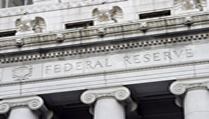Regulator looks to bring large foreign banks to heel with host of new proposals.
 Continuing his role as top cop to rein in banks Federal Reserve Governor Daniel Tarullo has proposed new rules for how foreign banks operate within the US. These banks need to behave in accordance with US regulations and rules are needed to blunt any risks they pose to US financial stability, Gov. Tarullo said in a recent speech.
Continuing his role as top cop to rein in banks Federal Reserve Governor Daniel Tarullo has proposed new rules for how foreign banks operate within the US. These banks need to behave in accordance with US regulations and rules are needed to blunt any risks they pose to US financial stability, Gov. Tarullo said in a recent speech.
“We need to adjust the regulatory requirements for foreign banks in response to changes in the nature of their activities in the United States, the risks attendant to those changes, and instructions from Congress in new statutory provisions,” Gov. Tarullo said at a Yale School of Management leaders forum. “The modified regime should counteract the risks posed to US financial stability by the activities of foreign banking organizations, as manifested in the years leading up to, and through, the financial crisis.”
To that end, foreign banks need to follow a regime that prevents runs associated with short-term funding (watch out money market funds) and makes it easier for regulators to resolve cross-border issues as well as diminish “the potential need for ex-post ring-fencing when losses mount or runs develop during a crisis.”
Acknowledging that foreign banks do bring a benefit to the US economy – and the fact that a bank might decide to pull stakes in the US rather than adhere to costly rules – Gov. Tarullo said regulators need to “chart a middle course, not moving to a fully territorial model of foreign bank regulation, but instead making targeted adjustments to address the risks.” According to the Fed, 10 foreign banks now account for more than two-thirds of foreign bank third-party assets held in the US, up from 40 percent in 1995.
Although the largest US operations of foreign banks aren’t as big as largest domestic financial institutions, it is significant, Gov. Tarullo noted. There are 23 foreign banks with at least $50bn in assets in the United States, the $50bn figure being the threshold established by the Dodd-Frank Act for special prudential measures for domestic firms (of which there are 25 in the US). Also notable is that five of the top-10 U.S. broker-dealers are owned by foreign banks.
To get a better handle on these banks, the Fed would require large foreign banks establish an intermediate holding company over all US bank and nonbank subsidiaries. This would make supervising easier and reduce the ability of foreign banks to avoid US consolidated-capital regulations. Other requirements of the Dodd-Frank Act, including stress testing, risk management, single counterparty credit limits, and early remediation requirements should also be applied to the US operations of large foreign banks, Gov. Tarullo said.
The Fed governor also acknowledged implementing these rules fairly will be a challenge:
“Debates over the relative merits of territorial versus global or mutual recognition approaches, the difficulties in achieving strictly equal terms of competition between banks with different home regulatory systems, and the degree to which harmonization of international standards and supervisory consultations can mitigate the resulting inconsistencies and frictions.”
As such these proposals are a way to move forward, he said.